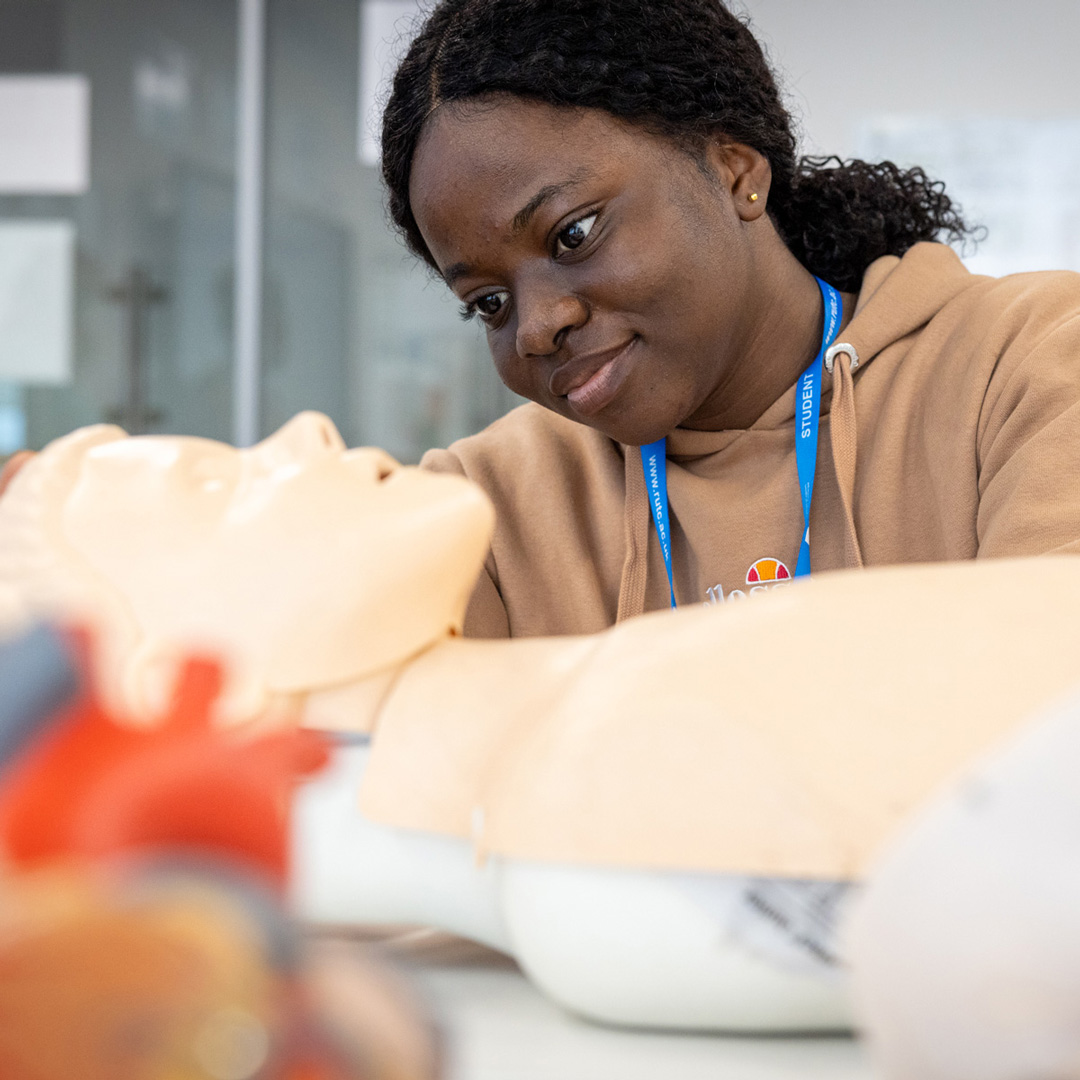Learners will study a number of mandatory units to develop the skills required within the health and social care sector as well as optional units that focus on specialist areas of work within health and social care. You will also undertake a work placement in a relevant setting during your period of study.
Examples of Units:
- Developing effective communication in health and social care
- Equality, diversity and rights in health and social care
- Health, safety and security in health and social care
- Development through the life stages
- Anatomy and physiology for health and social care
- Personal and professional development in health and social care
- Sociological perspectives for health and social care
- Psychological perspectives for health and social care.
-
Entry requirements
5 GCSEs (including English and Maths, ideally at grade 4 or above). A GCSE in science is also desirable, depending on your progression preferences, eg. nursing, midwifery and radiology etc.
-
Who is the course for?
This course is for students who wish to acquire skills and knowledge to prepare them for working in the health and social care sector. Within the course you will gain knowledge and understanding of a wide range of subject areas relating to health and social care, involving the elderly, people with additional needs and children. You will spend some of your time in a range of work related placements.
-
Study methods
All students (16-18 year olds and 19+) on Level 3 vocational and technical programmes will study two qualifications over the duration of their two-year course. The Foundation Diploma will be completed in year 1, as this must be successfully completed in order to progress onto the Extended Diploma in year 2.
There are 4 externally marked exams in year 1 and these are:- Anatomy and physiology
- Health, safety and security
- Safeguarding
- Equality and diversity.
In addition, there are a further 5 coursework units that must be completed successfully.
- Anatomy and physiology
-
How is the course assessed?
Coursework is continually assessed through assignments. These may be written projects, presentations or discussions. You will also be required to complete a meaningful work placement in a voluntary capacity, for a minimum of 100 hours, to support and underpin your assessed work.
-
Where Next – Job Opportunities
Some students go straight into employment which can include further training in such areas as care support work, health work or advice and assistance work within the sector. You can go on to higher education to study nursing, midwifery, social work, therapy or related areas of study at university or other institutions. You may also progress on to the Kingston University Foundation Degree (at Richmond College) in Early Years workforce, as a route into teaching.
-
Where Next – Further Studies
Successful completion will allow you to progress on to the Extended Diploma (year 2). You will learn, develop and use a variety of transferable skills throughout the course. These include collecting, analysing and interpreting data, communicating your findings in different ways as well as identifying and developing the links between different parts of the subject.
These skills are in great demand and are recognised by employers and universities as being of great value. Successful completion of the Extended Diploma can lead to university or an equivalent Level 4 qualification, or to employment within the sector. -
How to apply
To apply for a course either click the APPLY NOW button - fill out the form online and submit
OR download an application form here and post it to the address on the form.
When we have received your application we will contact you to arrange an interview time.
